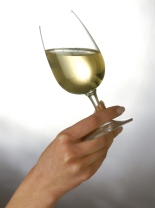For my annual post on SAD, I wanted to share a passion project I’m working on in my new business, Eat to Love. I hope you enjoy:
For many years I had the same experience:
I woke up some morning in mid-November and felt like my limbs had turned to wood. I looked at the clock and calculated how many hours there were until I could go back to bed. I moved about my day as if an invisible wet woolen blanket was draped over me, weighing me down, making everything I did feel more difficult.
This experience always seemed to catch me by surprise. After a week or so, I’d remember that the same thing had happened the year before, and the year before that.
Then one autumn a couple of years ago, I learned to anticipate feeling this way. I learned about Seasonal Affective Disorder, its symptoms, and how to work with it. Somehow this made all the difference.
Knowing what to expect didn’t keep SAD at bay, but it did help in 3 specific ways:
- It helped me feel less confused: I learned the biological basis for SAD, which actually makes a lot of sense. Changes in the seasons and in the light we are exposed to changes the ways our brains and bodies work.
- It helped me feel empowered: By anticipating SAD, I could relate to it differently. I recognized that it was a real condition that comes at a predictable time. That the symptoms I experienced weren’t permanent or wrong, and that there were steps I could take to change them.
- It helped me to get ahead of it: By knowing that the biological changes associated with SAD start happening as early as September, I learned what steps to take and when to prevent and manage it as best as possible.
Knowing what to expect was a powerful change that happened for me. And it is one of the main reasons why my colleague Dr. Peter Bongiorno and I are offering a class on October 20th at the 92nd Street Y. We are squeezing a lot into this class, including the causes and symptoms of SAD and:
- Sleep hygiene
- Environmental toxins
- Light and light box therapy
- The role of exercise
- Specific foods and eating patterns to help you feel better
- Dealing with cravings
- Support, stress management, and spirituality
- Complementary medicine
- Dietary supplements
Don’t wait until you feel the full weight of SAD. Take steps now to prevent and manage this condition so you can enjoy the beauty of winter without the burden of the blues. Hope to see you there!
DETAILS
Date: Mon, Oct 20, 2014, 6:30 pm
Location: Lexington Avenue at 92nd St
Venue: Classroom
Price: from $24.00
FOR MORE INFORMATION AND TO BUY TICKETS, Click HERE.




